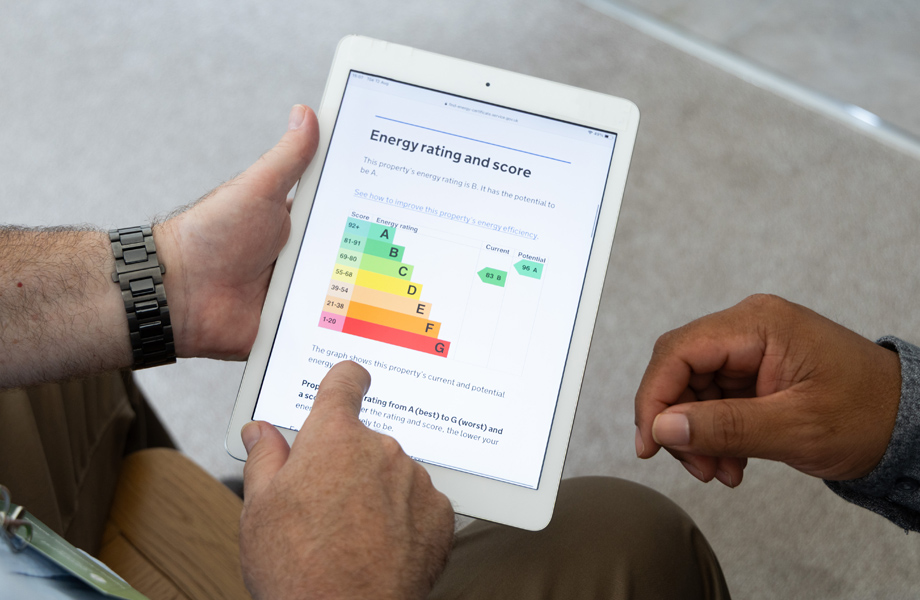Protecting Standards, Powering Progress: Elmhurst’s Case for EPCs and the Industry

By Stuart Fairlie, Managing Director, Elmhurst Energy
Energy Performance Certificates (EPCs) remain a cornerstone of the UK’s efforts to make homes warmer, more affordable to run and lower in carbon emissions. They provide trusted, standardised information on how a property performs and what can be done to improve it.
With homeowners becoming increasingly aware of energy performance, the EPC has never been under greater scrutiny.
A recent BBC Radio 4 You and Yours programme (listen from 11:56 onwards) brought this into sharp focus, examining the experience of physicist Michael de Podesta. After investing £60,000 in upgrades to his 1920s home, including insulation, solar panels and a heat pump, he achieved exceptionally low heating costs of just £160 per year. Yet his EPC rating initially went down rather than up. His experience prompted a broader debate about the EPC system, its methodology, and how errors are addressed.
As Managing Director of Elmhurst Energy, I was invited to join the discussion to provide clarity and the industry’s perspective.
EPC Methodology in Need of Reform
The debate around EPCs often centres on the methodology used to produce them. At present, EPCs are based on a cost metric, which can create anomalies. Because electricity is more expensive than gas, households that replace a gas boiler with a low-carbon heat pump may not see their rating improve, even though they have reduced emissions.
As I explained on the programme, the methodology that energy assessors are required to use is based on price, and because electricity is more expensive than mains gas, this can create anomalies. We often see that when a homeowner replaces a gas boiler with a very energy efficient solution, such as a heat pump, the EPC rating can actually go down. That is clearly counterproductive to the message about being energy efficient and reducing carbon. The underlying issue is that the methodology needs to be kept up to date and remain as current as possible.
The good news is that reforms are on the way. Updates to the methodology will better reflect low-carbon technologies and the decarbonisation of the grid, ensuring EPCs remain fit for purpose and aligned with the UK’s net zero commitments.
The Growing Value of EPCs and Assessments
Concerns were also raised about the price of assessments, with Michael noting that he had been quoted a fee much lower than expected. Hearing this from Michael as a consumer who recognises the value of the EPC was encouraging, as it highlights a long-standing challenge that many within the industry also share.
As I said during the interview, EPCs “need to be taken more seriously.” The role of the EPC has grown significantly over time.
Once seen as a simple compliance document, it is now an essential part of property transactions, lending decisions, and government policy. With that added responsibility comes a need for recognition of the value of the work behind it.
Energy assessments are not quick box-ticking exercises. They require professional skill, careful judgement and often considerable time on site to gather accurate data. The result is not just a certificate, but valuable insight into how a property performs and how it can be improved.
This is why Elmhurst defends the value of the work carried out by trained and accredited assessors. They should take pride in the vital role they play, and society must also recognise the true worth of the service they provide.
Auditing and Quality Assurance Remain Key
Michael’s concerns also touched on the accuracy of assessments. EPCs must be accurate, because people rely on them to make big decisions about their homes, That is why Elmhurst operates one of the most active auditing programmes in the industry, with tens of thousands of checks every year to make sure assessments meet the required standards.
Auditing is central to how accreditation functions. Every EPC assessor must be accredited through a government-approved scheme, and at Elmhurst we monitor our members through a mix of random, follow-on and risk-based audits. If issues are found, certificates are corrected and assessors receive feedback, training or follow-up checks. This ensures that quality is continually improved and that defective EPCs are not left in circulation.
Auditing and quality assurance are central to accreditation. When issues are identified, certificates are corrected, and assessors are given feedback and support. This ensures continuous improvement and reinforces the credibility of EPCs as trusted consumer documents.

Looking Ahead
At Elmhurst, we see the growing public interest in EPCs as a positive development. It shows that people care more about the performance of their homes, their energy bills and their environmental impact.
As the UK’s largest accreditation body for energy assessors, we will continue to defend the EPC, advocate for its ongoing reform, and support the thousands of trained professionals who deliver them. Assessors should take pride in their work, knowing that it provides essential insights for households and plays a central role in the nation’s journey to net zero”
Read our Almanac
The Elmhurst Almanac highlights what we believe are the highest priority actions for government and industry to reduce fuel poverty, energy consumption and our impact on climate change.
DOWNLOAD NOW
Related Links
